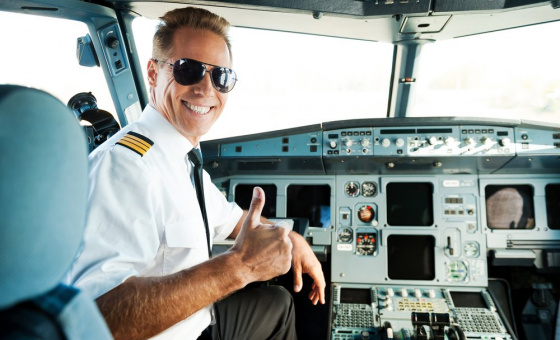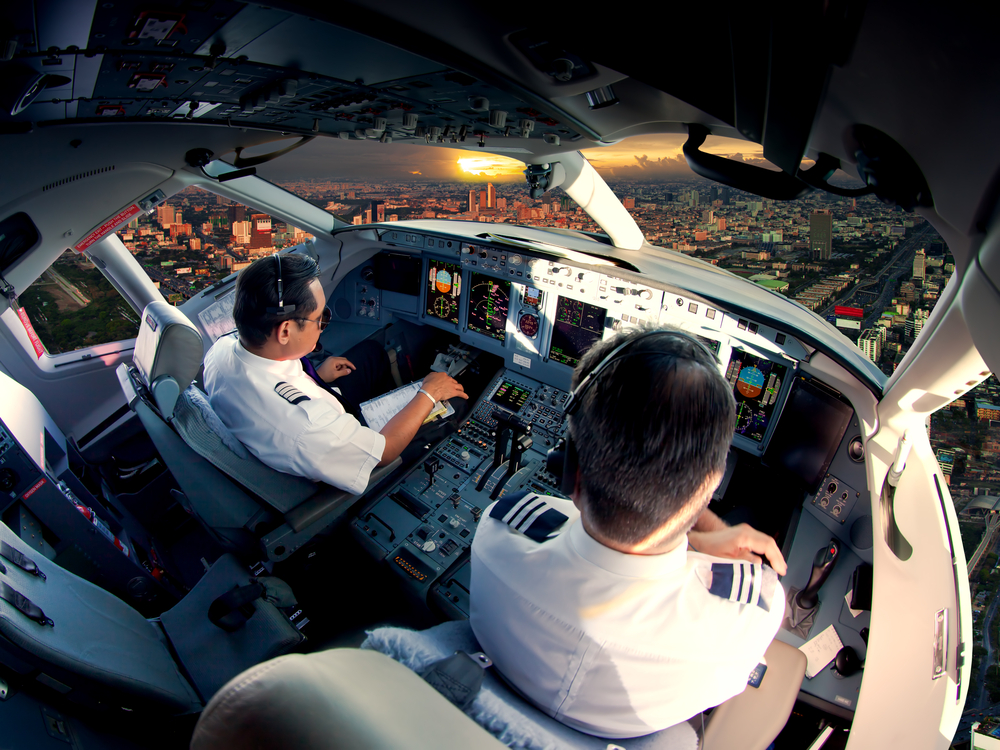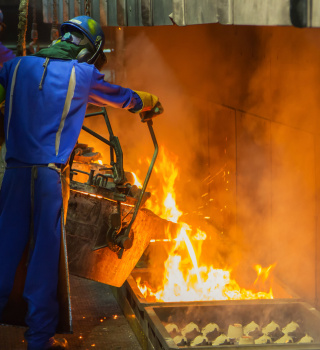
Description
An aircraft pilot or aviator is an individual who controls the flight of an aircraft by operating its directional flight controls. An airplane pilot is the main operator of an airplane or helicopter. They plan the flights in detail before departure and are responsible for ensuring the proper function of the airplane by thoroughly inspecting the systems, controls, and instruments of the aircraft. Other job duties include verifying proper loading of cargo and baggage, knowing destination weather conditions and aviation weather forecasters, choosing the route, speed and altitude that will give the safest and fastest flight, and others.
Common Duties/Routines
The job of an airplane pilot is a lot more than just take-off and landing. Pilots start their workday in an airport briefing room learning about the weather and safety issues relevant to their flight. Once they board the airplane, a pilot must conduct pre-flight inspections to ensure everything is fully functioning. Pilots must remain very alert for equipment malfunctions, flocks of birds heading for airplane engines or weather related issues that may disrupt the flight. As the head of an airplane, the airplane pilot must look over the management of medical emergencies. In addition to flying people to exciting destinations, pilots can work in other roles such as flight instructors, serving in the military, working independently as a pilot-for-hire or flying cargo planes.
Required/Trained Skills
- Obtain a bachelor's degree
While a college degree is not exactly necessary to get started in this field, the BLS reports that airline pilots are required to have a bachelor's degree, regardless of the major. However, aspiring pilots can gain more relevant knowledge by enrolling in an aviation or aeronautics bachelor's program. Regardless of their major, students need to complete courses in physics, aeronautical engineering, mathematics, and English. It is important to enroll in an aviation or aeronautics program that has been approved by the Federal Aviation Administration (FAA). While in school, consider joining a student club.
- Gain flight experience
Aspiring airline pilots are required to complete a certain number of hours of flight training to qualify for licensure. A commercial pilot's license requires 250 hours of flight time - in addition to 1,500 hours for an airline transport pilot certificate - is required. Flight training can be completed through degree programs or by flying schools approved by the FAA. Airline pilots must also have a minimum of 40 hours of instrument flying experience in-air and through simulation. Instrument flying ratings determine the pilot's ability to fly in low visibility conditions.
You may want to consider hiring personal flight instructors. Although formal training provides the basic education, it usually doesn't provide enough experience to properly succeed as an airline pilot, according to ALPA. By hiring personal instructors, you have the opportunity to gain in-depth knowledge and experience.
You may also want to join the military. According to the ALPA, many pilots obtain flying experience through working in the military. Military pilots also have the opportunity to gain substantial flight experience and are often preferred candidates for airline companies.
- Acquire a license
To obtain a pilot's license, one must complete a minimum number of hours of flight experience. Individuals are also required to pass a written exam, demonstrate flying ability and take an instrument flying rating exam. As a part of the pilot's license requirements, individuals are supposed to pass a physical exam, which includes having vision correctible to 20/20, excellent hearing and no physical handicaps that could hinder the job.
- Gather professional experience
Many airline companies require pilots to take physical, psychological and aptitude tests, as well as drug tests, as a prerequisite for employment. Once they are hired, pilots have to undergo an extra 6-8 weeks of training, including at least 25 hours of flight time. Additionally, most new hires are brought on as co-pilots. It's also not uncommon for some pilots to start their career at small commuter or regional airline companies. This gives them the opportunity to gain more flying experience before being hired by a major airline.
- Advance as an airline pilot
Advancement in this fieldmostly depends on seniority, but pilots can achieve the rank of captain through other ways. Airline pilots can acquire an air transport pilot's license, which allows cross-country, night, and instrument flying experience. This requires passing additional FAA written and practical exams. Pilots may also aim to acquire more flight ratings. Typically, ratings directly correlate to the type of aircraft one can fly, such as a multi-engine jet.
It is also important to join a professional association. Airline pilots will be able to continue learning and staying up-to-date with changes in the industry through membership with professional pilot associations. For example, pilots can easily access aircraft safety training webcasts and webinars offered by the Aircraft Owners and Pilots Association (AOPA) or safety seminars offered by the International Federation of Airline Pilots Associations (IFALPA).

Years of experience required to become an airplane pilot
Newly recruited airplane pilots are likely to begin working for a regional airline or as a first or second officer with a larger airline. Becoming a captain requires several years of experience. In addition to practical knowledge, experienced pilots are the recipients of hidden benefits. Pilots with less experience have to take an additional flight to their home city. Similarly, experienced pilots are given more options in routes and shifts. Most of them prefer long-haul flights of six hours or more, as opposed to short-haul flights of 30 minutes-to-three-hours. A long-haul schedule usually includes exotic destinations, lesser flying time and a larger flight crew, which allows pilots more leisure time between flights.
Salary/Compensation
According to the U.S. Bureau of Labor Statistics the median annual wage of airplane pilots was reported to be $105,720 in 2016. Fresh pilots working for regional airlines usually make a lot less. Regional or smaller airlines often pay around $20 to $50per hour. Experienced pilots who fly larger commercial jets typically make as much as $121,408. Salary increases for pilots are awarded annually and significant increases are realized after the first five years of flying, following a standard probationary period.
技能专长 6
技能专长
硬技能
- Math skills
- Knowledge of aircrafts systems
- Aircraft configuration skills
- Aircraft driving skills
- Aircraft piloting skills
- Aircraft navigation skills


